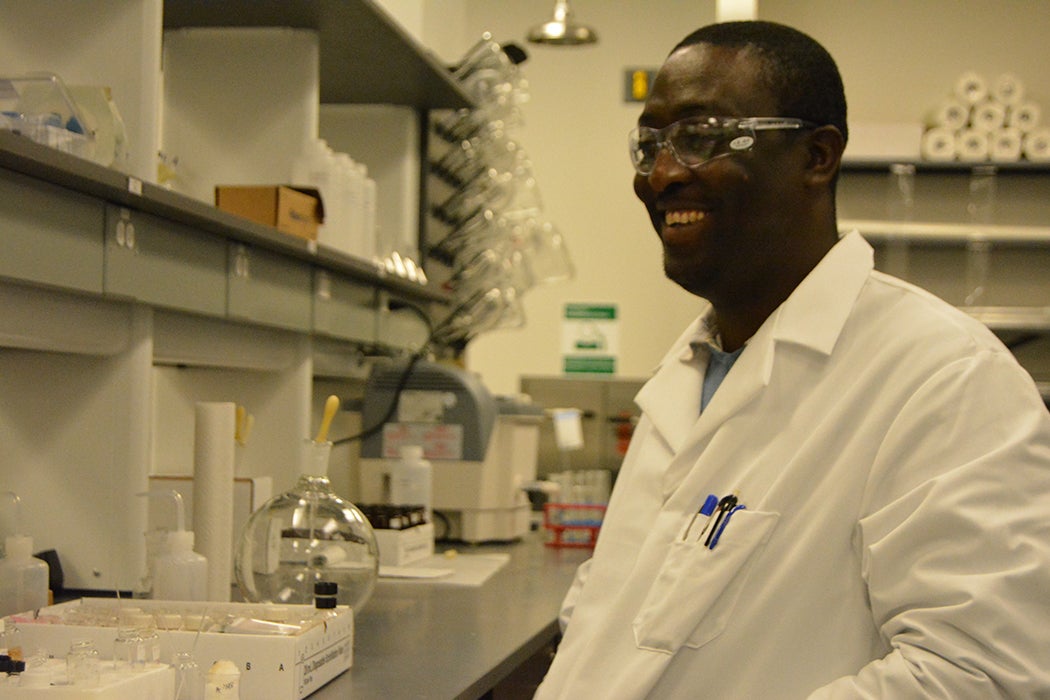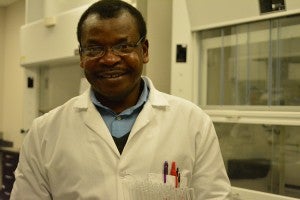Nigerian researchers find hope at UM research center
Published 12:00 pm Monday, March 21, 2016

- Bello Oluwasesan
By Mrudvi Bakshi
news@oxfordeagle.com
Being the nation’s only university-affiliated research center devoted to discovering and developing pharmaceuticals and agrochemicals for natural products, researchers at the Thad Cochran Research Center at the Ole Miss School of Pharmacy are constantly involved in experimenting on drugs for cancer and other infectious diseases.
Visiting scholars Bello Oluwasesan and Vincent Imieje from Nigeria have made it past the doors of the renowned center and share why it means so much to them.
Juggling between his job as a professor at the Federal University Dutsin-Katsina State in northern Nigeria and that of a research scientist for the study of natural products, the opportunity to work at the National Center for Natural Product Research (NCNPR), brought Oluwasesan a step closer in his study to eradicate cancer. Pharmacist by day and post-grad student at night, Imieje, who is from Benin, Nigeria, works on isolating bioactive compounds found in several medicinal plants with an aim to cure malaria.
With their diverse areas of study and different compounds for experimenting, one thing stays common for the two Nigerian nationals. Both regret the dearth of resources and machinery to carry out large-scale research and the rather laid-back system of governance in Nigeria, a government that seems unwilling to invest money in their field of study and thus hampers progress.
With his goal to isolate plant compounds that could help eliminate any sort of inflammation and cancer, Oluwasesan appreciates how amenities enabling research available at your fingertips, just drop a word to the concerned supervisor and the material required is here in no time. In Nigeria a long wait of six to eight months with shipments of supplies coming from as far as Germany and America hinders research.
What’s ironic is the plants used in the Ole Miss laboratories are originally grown in Nigeria and West Africa.
“If we could provide the raw ingredients to conduct study, I don’t see why we can’t avail of the machinery to proceed into the consecutive stages,” Imieje said.
Both said they are grateful to Ole Miss for teaching them both classical and modern ways of conducting research. While the modern techniques aren’t yet available due to the lack of equipment in Nigeria, classical research is more flexible and can be replicated in any part of the world.
“NCNPR has an international reputation in research and development of natural products for human health and agriculture,” said Ikhlas A. Khan, associate director at the NCNPR. “These visiting scholars are working on Nigerian plants used traditionally in their country to explore the type of compounds present in them and look out for their biological effects, if any.
“We are blessed to have many international visiting scientists coming to get training and share their experiences Bello and Vincent are friendly, hardworking and a good addition to our group and the NCNPR.”
Oluwasesan said he got interested in his field in his high school days.
“My motivation has to be my chemistry teacher, who with her teaching helped me develop a love for the subject. That day and now, I’ve been a loyal disciple.”
For Imieje it was the drive to explore and do something worthwhile in the field of science.
Mismanagement, corruption and misappropriation in their home country, along with a lack of vision and focus on research of such caliber, make working there more complex, they said.
Both scientists have high praise for how the United States encourages collaborative work. They said it makes it easier for them to prepare primary samples of their findings and send samples to laboratories across the nation to be reviewed and appraised by scientists.
It will be a major breakthrough in the field of science if they can isolate the bioactive compounds from the medicinal plants that possess anti-malaria activities.
“At present, Nigeria has no such university or institution that can facilitate the in-vitro (using cells, microorganisms or biological molecules outside their normal biological context) study of anti-malaria drugs,” Imieje said.
A new vibe
Vimal Kant Sharma, a Ph.D. research scholar, said the NCNPR has developed a new vibe altogether.
“Getting a chance to work with people like them excites you, to know their cultural diversity, prevailing diseases and witness their constant and diligent efforts to find a cure for the same,” he said.
Oluwasesan also said he admires the leadership here in the United States.
“I think the nation has great founding fathers who have planned way ahead of time.”
After a couple more months of research, both Oluwasesan and Imieje will have to wrap up their findings and go back home. They are hopeful that someday scientists from across the globe will visit Nigeria to witness technological advancement the way they have here.






